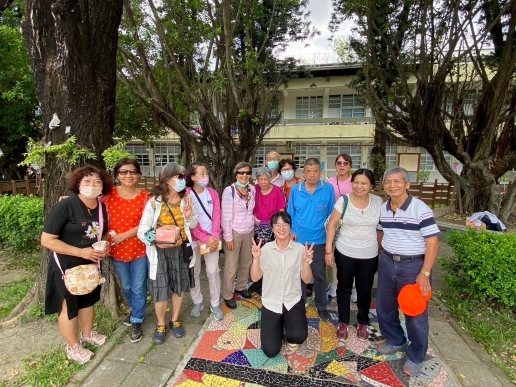By The China Post, Taiwan/ Taiwan Immigrants' Global News Network
According to The China Post, Taiwan is surrounded by sea and has abundant fishery resources, but there is a shortage of fishermen; therefore, in recent years, foreign fishermen have been brought in to support Taiwan’s fishing industry.
According to a report published by the Control Yuan (監察院), as of the end of September 2020, there were 1,106 offshore fishing vessels in Taiwan and 22,000 migrant fishermen were employed outside of Taiwan.
These fishing vessels operate in three oceans and use 32 ports worldwide. However, the rights of Taiwan’s fishermen are of great concern to foreign governments and non-profit organizations.
The U.S. published the 9th edition of the “List of Goods Produced by Child Labor or Forced Labor” in 2020, which marks the first time Taiwan’s offshore fishing was included.
1028.jpg)
Rerum Novarum Center calls for installation of prayer rooms. (Photo / Retrieved from Pixabay)
Currently, the United States, Canada, and Mexico explicitly prohibit the importation of goods produced by forced labor.
In addition to the high working hours and low pay, some fishermen were cheated by their employers and others had to live on the fishing boats.
In the beginning, there was not even a place to take a shower, no matter in winter or summer, and fishermen could only take showers at the port.
Rerum Novarum Center Fishermen Service Section member Jason Lee (李正新) remarked,
“This is not only physically torturous for the migrant fishermen, but also affects them psychologically.
“Some of the fishing ports are also big tourist hot spots, so how do you think the fishermen will feel after working for hours on end and having to take a shower in the open where women and children pass by?” Lee asked.
To this, many non-profit organizations have advocated for a washroom at the harbor, but Lee believes that in addition to a washroom, installing a prayer room is also important.
Lee, who had lived in Indonesia for 11 years, often communicates with Indonesian fishermen to understand the situation.
He found out that some migrant fishermen in small ports often express wishes that they could have bathrooms that had hot running water and clean prayer rooms like the big ports do.
However, these hopes are often unrealized. Some fishermen believe that no one will notice the migrant fishermen in small fishing ports, not to mention notice the absence of harborside facilities.
Lee, who knows what it was like living in a foreign country, feels that one may be able to endure physical torture once in a while, but being restricted from manifesting one’s faith is more likely to cause someone to break down in the long run.
“I’m a devout Christian, and whenever I felt homesick or had a hard time while working in Indonesia, I would pray to God. So I understand the migrant fishermen’s desire to maintain their faith,” Lee said.
Lee said the vast majority of migrant fishermen come from Indonesia, and the religion of many Indonesian migrant fishermen is Islam.
For Muslims, it is normal to pray and worship five times a day in the direction of Mecca. When praying and worshiping, one should clean one’s mouth, nose, ears, hands, and feet and pray in a clean, indoor place.
However, migrant fishermen working in Taiwan work and live on the ship. In addition, due to their busy schedules and the small space on the ship, they can only pray and wash on the deck.
Sometimes they can only have one prayer, but if time allows, they will complete five daily prayers and find solace through praying to Allah to keep them safe in this foreign land until they return home and reunite with their families.
1028.jpg)
Rerum Novarum Center calls on all government agencies to pay attention to the rights and interests of fishermen. (Photo / Retrieved from Pixabay)
After hearing of the fishermen’s simple requests, Rerum Novarum Center visited and surveyed the 21 fishing ports that directly serve migrant fishermen and interviewed 102 fishermen to understand the actual situation of praying and washing in each port and to collect their opinions.
At the same time, they check for suitable locations to set up washrooms and prayer rooms in the harbor.
The fishermen they met during the process were all bashful and smiling, which left a huge impression on the Rerum Novarum Center workers as they saw them persevering even though they encountered setbacks.
Not only did the public call for officials to remedy fishermen’s rights, but Control Yuan members Wang You-ling (王幼玲), Wang Mei-yu (王美玉), and Tsai Chung-yi (蔡崇義) also investigated and interviewed migrant fishermen and found that those on offshore fishing vessels had indeed been subjected to wage deductions, excessively long working hours, withholding of identity documents, and forced to sign exploitative contracts by agents.
The Control Yuan called on three ministries, namely the Fisheries Agency, the Ministry of Labor (MOL, 勞動部) and the Ministry of Foreign Affairs (MOFA, 外交部), and requested the Executive Yuan to look into the labor rights of migrant fishermen on offshore fishing vessels.
A spokesman for Greenpeace said that the system of foreign employment should be abolished, as most migrant fishermen on offshore fishing vessels are currently employed outside the country and have no labor rights or protection.
They added that the MOL should enforce the “Labor Standards Act” to ensure that all migrant fishermen enjoy the same level of care as local fishermen.
Authorization of this article from【The China Post】By 4-Way Voice | Translated by Vivian Hsiao

1028.jpg)





